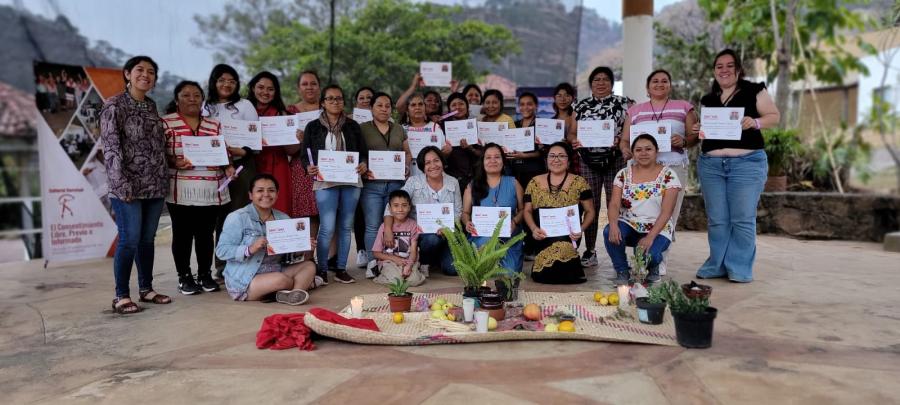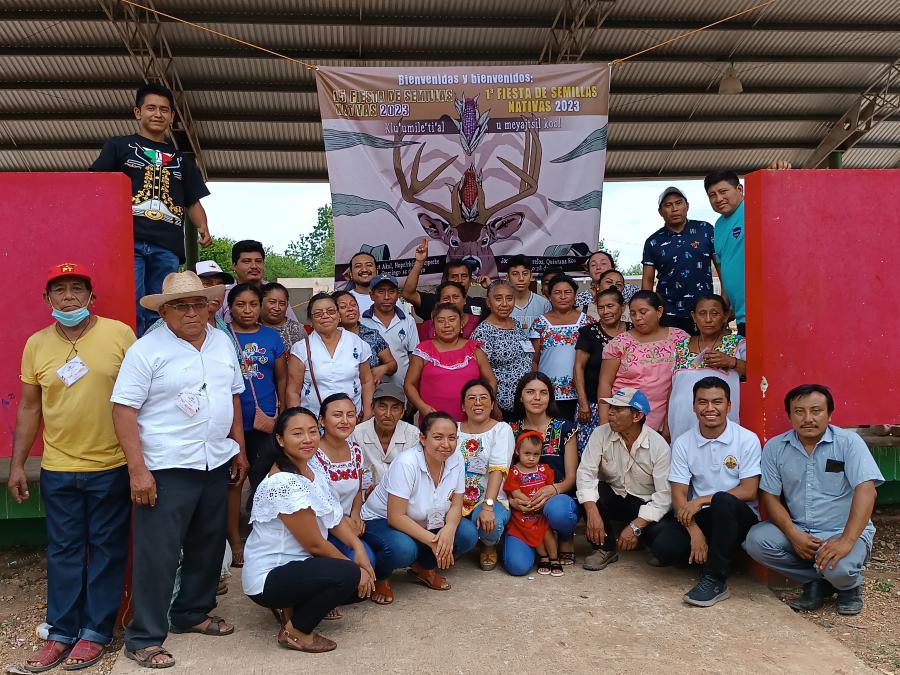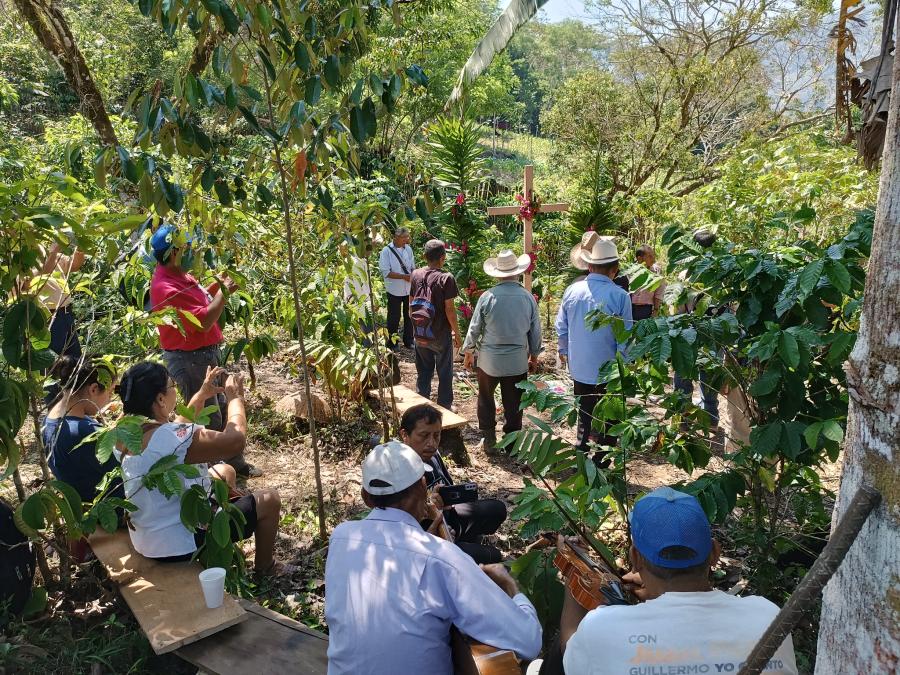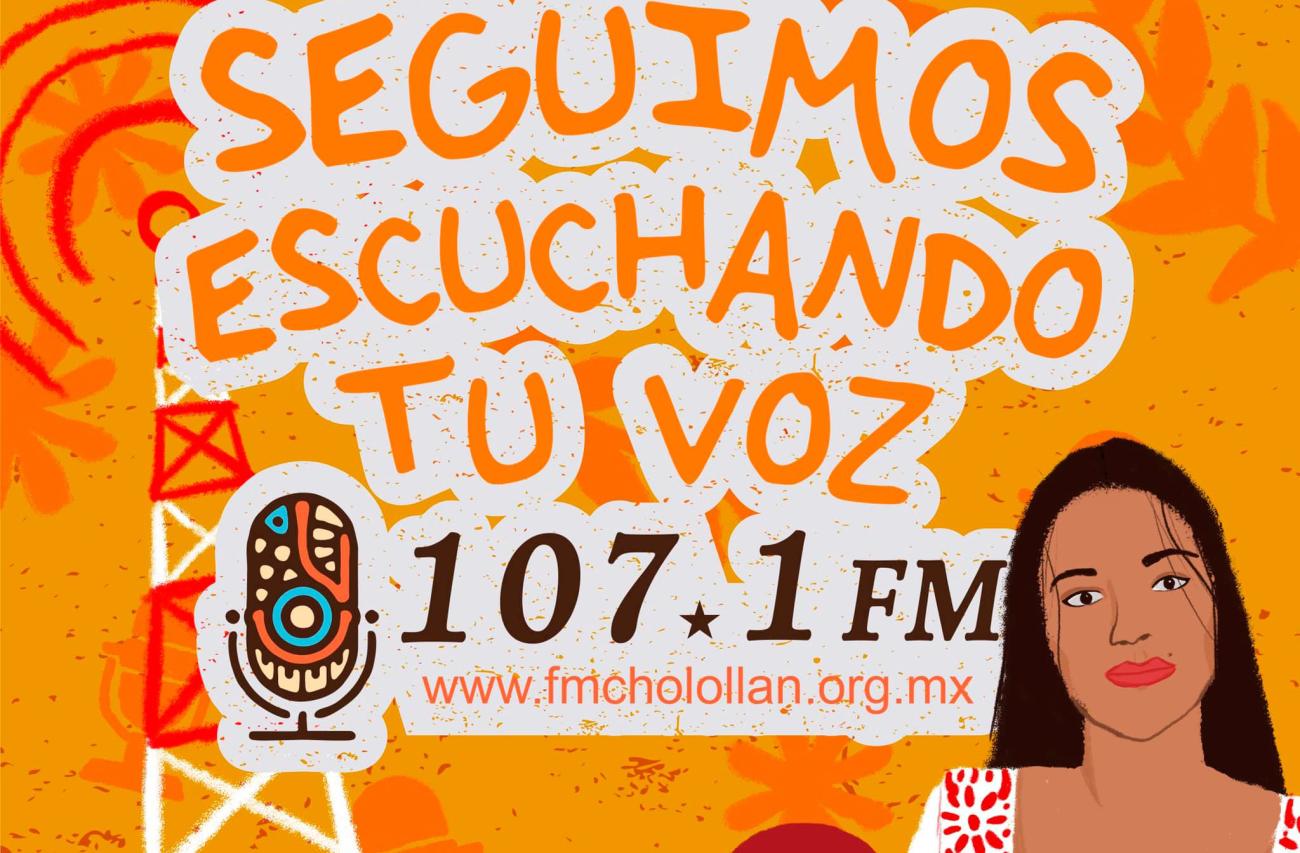
By Miryam Vargas Teutle (Nahuatl)
"Communication is like a woman. It sows the seed of transformation. Its root is the word of the Earth. It is music. It is all that we perceive. It is Mother Earth that speaks and listens to us." --Member of Community Radio Cholollan
Indigenous Peoples are invaded by mass media that serve the Global North and do not understand what is happening in our territories. The stories about us are told without truthfulness, leaving a significant gap between what happens and what is told. The corporate media agenda is determined by interests unrelated to us.
Mainstream media in Mexico imposes discourses and narratives that do not represent us, that are untrue and alienating. Access to mainstream media is not easy. Privileged sectors with a vertical-propaganda strategy aim to perpetuate those in power by perpetuating stereotypes and capitalist discourses; disrupting geographical, cultural, ideological borders; imposing heteronomous forces of racism, patriarchy, machismo, ethnocentrism, and archetypes.
According to the International Telecommunications Union (ITU), the agency in charge of regulating telecommunications and radio broadcasting globally, the radio spectrum is "the common heritage of humanity, administered by the State to promote freedom of expression among a large group.” Despite the laws and regulations that support the right of communities to have their own forms of media, there are still severe conflicts due to public and private interests in making this a reality.
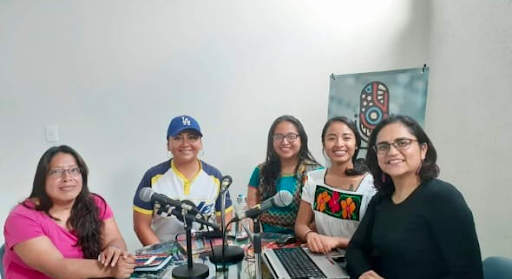
Community radio processes in Latin America have transformed from being educational and literacy tools to methods of support and strengthening of communities' rights to self-determination and the defense of their lands and territories. Community radio stations respond to the problems caused by the imposition of capitalist development projects, social injustice, violence, and exploitation of lands and territories. Community communication is a tool to fight, convene, denounce and rebuild. Through community radio stations, we change the narrative about us. We position ourselves as communities of life. We use community radio to produce discourse changes that produce community action.
Multiple breaking points have brought community radio to our territories. In my community, San Bernardino Tlaxcalancingo, an event in 1994 linked the Cholulteca communities, especially Tlaxcalancingo, with Zapatista communities. On more than three occasions, community members housed grassroots commissions in their homes. Our community played Zapatista music on loudspeakers, and there were painted pictures with the slogan: "Long live the EZLN."
The Mexican army immediately visited the community to prohibit any support of our Zapatista brothers. During this time, the idea of keeping the protest music and dialogue about what was happening in Chiapas and our community started. At that moment our community was going through a process of expropriation of almost half of our territory. The community's efforts continued, and a community communication project started in 2008 with Radio Cholollan.
"We got into witchcraft without knowing about herbs."- Elfego Riveros
A group of young people from the community went out to learn about Radio Teocelo and other community radio stations. Later, the second group of young people went through communication trainings, and as a result they were able to come up with ideas to create the project. In a short time, they made connections and a colleague from another area visited our community and shared their experience. These visits resulted in learning that training is an elementary practice that keeps nurturing the project.
In 2009, we started making visits and training in community radio in Tlaxcalancingo, covering some key points: what is community radio; what are the principles of a community radio; how to create programming; what is journalism; how to conduct interviews; and how to operate programs. Over time, we invited more people to support and accompany these training sessions, the project, and our members.
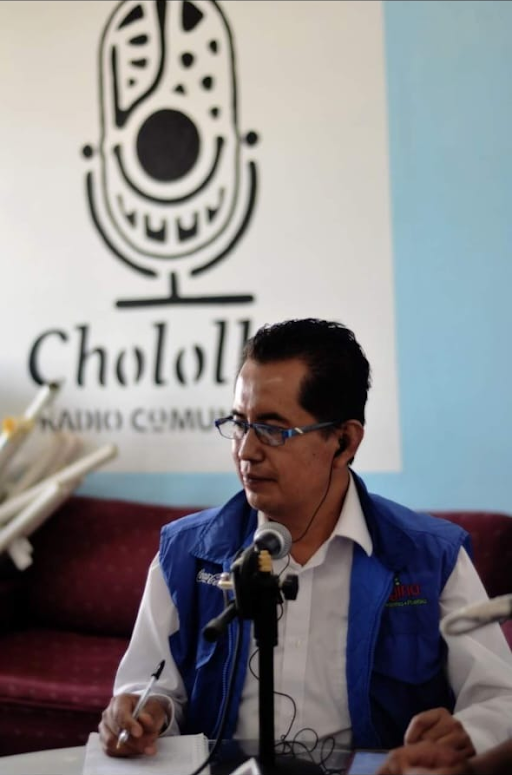
“Communicators and Educators”
In 2011, members of the Front of Peoples in Defense of Land and Water in Santa María Zacatepec Puebla and Amilcingo Morelos invited us to support them in launching their own communication projects. They aspired to start a community radio station in their towns to report on the implications of the Morelos Comprehensive Project. We did not know how to do it, but little by little, we started. At that time in Tlaxcalancingo, our radio station was already three years old. A small team from the radio shared the training content with folks from Zacatepec and Amilcingo, including lessons, technical information, and generally, how a community radio station works.
Every Saturday, we meet with youth to share ideas about what and how to disseminate content through the radio. The training sessions included content on operations and content production at a community radio station. We have been creating manuals and materials year after year. We have also been working with other communities to support their communications needs and helping them train communicators. We know that efforts must be constant, and we must generate the capacity to sustain this work, so we turn to other networks that support transformation in community communication and training to communicators.
We have put a lot of effort into this work, including trying to meet the demand for the constant training of communicators. There is a great need for non-governmental spaces that can independently support these efforts. Training continues to be a constant need within the group, not only because we support others and vice versa, but because education is a right that we must build and exercise.
A series of spaces have been opened to support local communities in their communication processes, but few sustain processes from the roots so they can be sustainable. One of the foundations of support work should be training communicators. Luckily, during this journey, we met Cultural Survival that supported us in 2021, the year in which, despite the problems of the COVID-19 pandemic, we managed to implement more than two trainings for communicators from Tlaxcalancingo and other communities in the central region of Mexico. We continue to build networks that grow as we move forward due to these training sessions.
We need to learn, know, connect and build training processes with a greater love for the land and the community. We aspire to hold trainings where the conversation strengthens and leads us to face the pandemic, the commercial media, and capitalism. We need transformative conversations, more humane, more dignified, and hopeful narratives to dream and realize how we want to live in our communities.
Radio Cholollan received a grant from Cultural Survival's Indigenous Community Media Fund in 2021. The Indigenous Community Media Fund provides opportunities for international indigenous radio stations to strengthen their infrastructure and broadcast systems and creates training opportunities for journalism, broadcasting, audio editing, technical skills, and more for radio journalists from indigenous communities around the world. In 2021, the Indigenous Community Media Fund supported 57 media projects in 23 countries, totaling $ 340,500.
Miryam Vargas Teutle (Nahuatl) is an Indigenous communicator from San Bernardino Tlaxcalancingo and a member of Radio Cholollan since 2008, as well as a member of Cholultecas Unidos en Resistencia (CHUR). She is a member of the Peoples Front in Defense of the Land and Water of Morelos Puebla and Tlaxcala and a member of the National Indigenous Congress.
